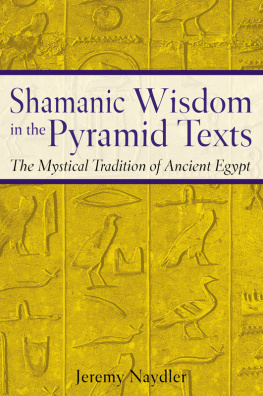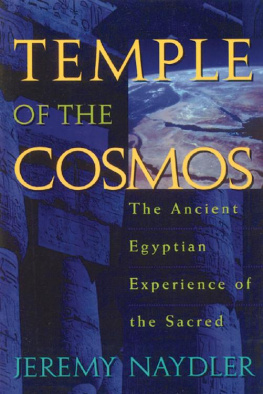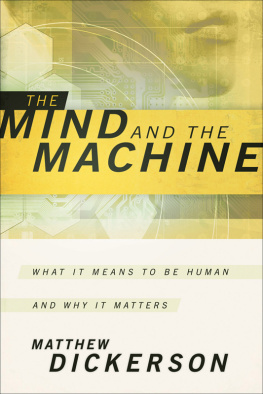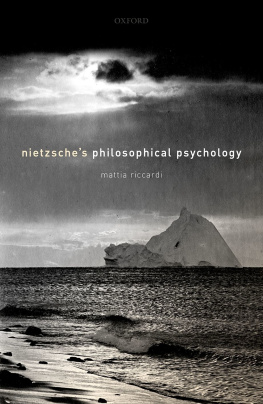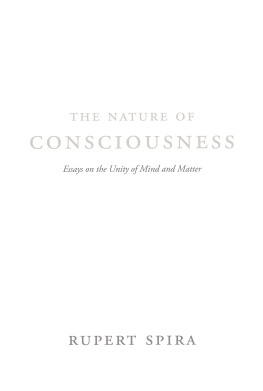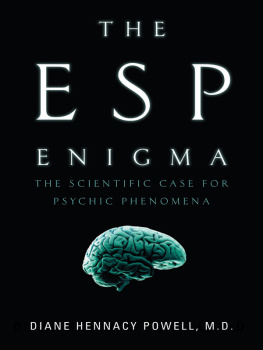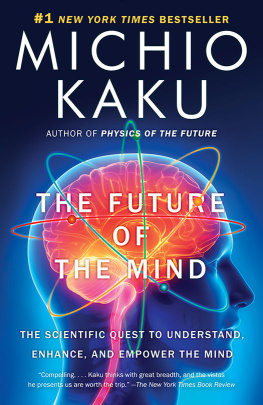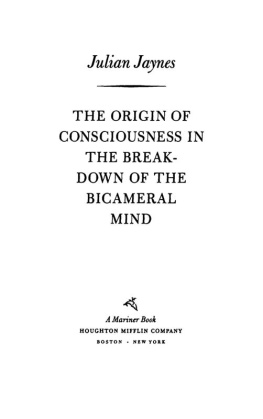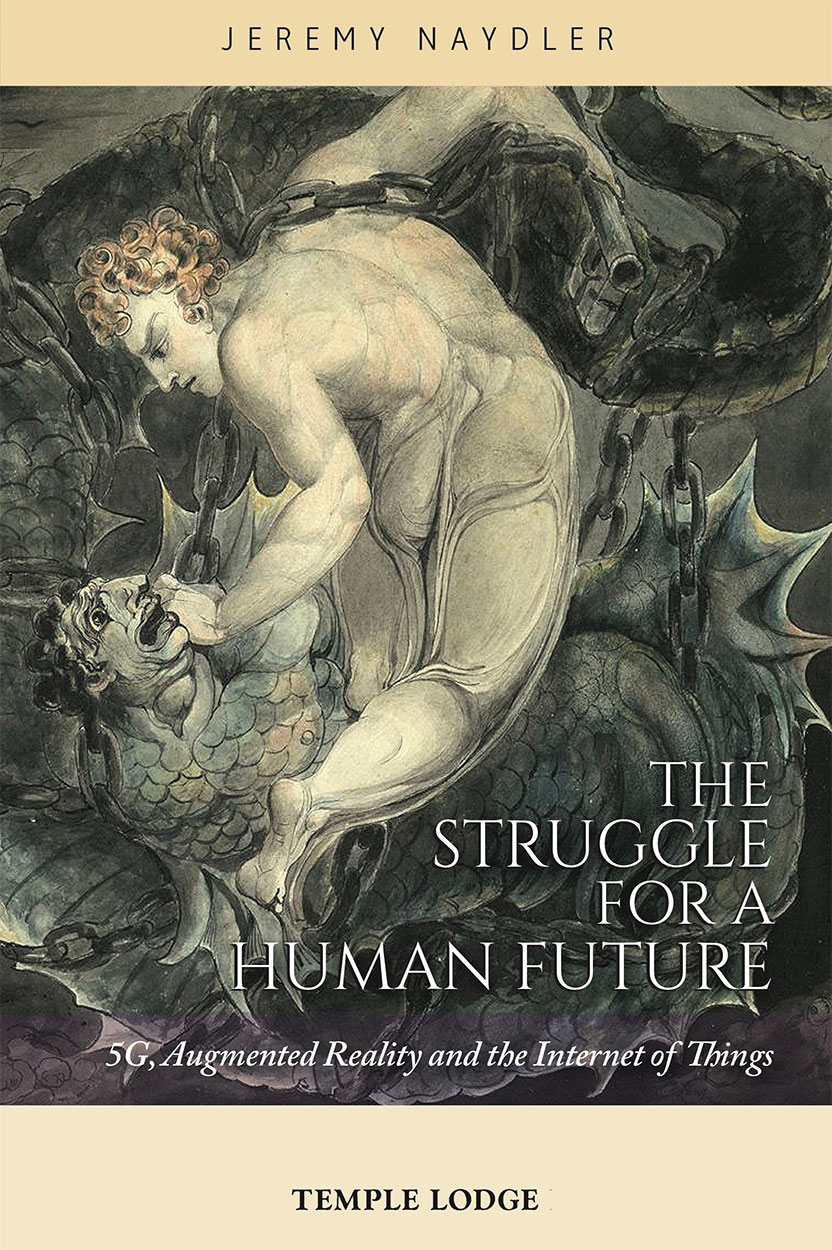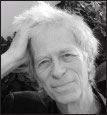JEREMY NAYDLER, PH.D., holds a doctorate in theology and religious studies, and is a philosopher, cultural historian and gardener who lives and works in Oxford, England. He has long been interested in the history of consciousness and sees the study of past cultureswhich were more open to the world of spirit than our own, predominantly secular, cultureas relevant both to understanding our situation today and to finding pathways into the future. His longstanding concern about the impact of electronic technologies on our inner life and on our relationship to nature has found expression in his book In the Shadow of the Machine (Temple Lodge 2018) and in numerous articles contributed to magazines such as New View, Self and Society and Resurgence.
Praise for In The Shadow of the Machine:
A brilliant and penetrating study of the prehistory of the computer in relation to the evolution of consciousness His book is a spiritual beacon reminding us that our essence transcends the material and the mechanical. David Lorimer, Paradigm Explorer
A marvellous and erudite account of the history of consciousness The range and depth of Naydlers investigation is vast. He identifies and brings out the significance of key, often little-remarked changes in thinking [and] offers new, insightful perspectives. Richard Gault, Beshara Magazine
This important and profoundly thought-provoking book is a must-read for anyone with an itch in the back of their mind that something is very wrong with the world today. [It] takes us on the fascinating journey of the human mind from the very dawn of time to today, the age of the computer. In doing so, we are forced to question the very nature of our reality Brett Lothian, New Dawn
This mportant book illuminates contemporary consciousness powerfully, and offers a crucial exploration of what it means to be human. Mark Vernon, author of A Secret History of Chrisitanity
Jeremy Naydler has become, in my judgement, one of the most interesting and original living writers in Britain. Professor Bruce G. Charlton, author of Addicted to Distraction
OTHER BOOKS BY JEREMY NAYDLER:
Goethe on Science (1996)
Temple of the Cosmos: The Ancient Egyptian Experience of the Sacred (1996)
Shamanic Wisdom in the Pyramid Texts: The Mystical Tradition of Ancient Egypt (2005)
Soul Gardening (2006)
The Future of the Ancient World: Essays on the History of Consciousness (2009)
Gardening as a Sacred Art (2011)
In the Shadow of the Machine, The Prehistory of the Computer and the Evolution of Consciousness (2018)
THE STRUGGLE FOR A HUMAN FUTURE
5G, AUGMENTED REALITY AND THE INTERNET OF THINGS
JEREMY NAYDLER
Temple Lodge Publishing Ltd.
Hillside House, The Square
Forest Row, RH18 5ES
www.templelodge.com
Published by Temple Lodge 2020
Jeremy Naydler 2020
This book is copyright under the Berne Convention. All rights reserved. Apart from any fair dealing for the purpose of private study, research, criticism or review, no part of this publication may be reproduced, stored in a retrieval system, or transmitted in any form or by any means, electronic, electrical, chemical, mechanical, optical, photocopying, recording or otherwise, without the prior written permission of the copyright owner. Inquiries should be addressed to the Publishers
The right of Jeremy Naydler to be identified as the author of this work has been asserted in accordance with sections 77 and 78 of the Copyright, Designs and Patents Act, 1988
A CIP catalogue record for this book is available from the British Library
ISBN 9781912230464
Cover by Morgan Creative featuring The Archangel Michael Struggles with Satan by William Blake
Typeset by Symbiosys Technologies, Visakhapatnam, India
Printed and bound by 4Edge Ltd., Essex
Contents
INTRODUCTION
Remembering the Totality of Who We Are
The Digital Revolution has a way of constantly running ahead of its commentators. As it keeps taking novel forms and dazzling us with devices that have new and greater capabilities, we find that whatever technologies are in vogue today are all too soon superseded by newer, more powerful and even more seductive technologies tomorrow. This Proteus-like character of the Digital Revolution is part of its nature, but underlying its changing outer forms, there are deeper and more constant currents moving beneath the surface. It is these currents that are the real driving forces of the Digital Revolution, but they are more hidden than the latest smartwatch, headset or digital assistant.
The five essays gathered together in this book are concerned especially with the nature of these more hidden driving forces that stand behind the unfolding Digital Revolution. The latest phase of this revolution involves (amongst other things) the rollout of 5G, the establishment of the Internet of Things, the creation of a so-called smart planet and the growing use by human beings of Augmented Reality and Virtual Reality technologies. These developments are, however, symptomatic of a deeper process to which we should attend. For while each new technological innovation or upgrade promises many benefits, they come at a certain cost, which is borne both by the human soul and by the natural environment in which we live.
In the Western wisdom tradition, there is a recurrent theme of humanitys self-forgetfulness. We find it, for example, in Plato, in the Corpus Hermeticum, in Boethiuss The Consolation of Philosophy and in Gnostic texts such as the Hymn of the Pearl, to which we shall turn in Chapter Two. This self-forgetfulness is a forgetting of our spiritual origins, and of the fact that human nature has a transcendent source. The person we ordinarily identify with is not the totality of who we are. This totality includes a spiritual kernel of which we are for the most part unconscious, and yet is nevertheless the foundation of our being, and our relationship to it is the secret of true happiness.
The wisdom traditions of both West and East have perennially sought to inculcate awareness of this spiritual kernel, in order to counteract the tendency of humans of all cultural epochs to forget and to neglect our spiritual origins. Where we today differ from cultures of the past is that not only do we suffer from the forgetfulness that is part of the human condition, but we also pay scant attention to the wisdom traditions that seek to rouse us to remembrance. Instead, the whole thrust of contemporary culture is towards distraction, fragmentation and dispersion of consciousness. The Digital Revolution has carried this tendency to an extreme, so much so that if we had deliberately set out to design technologies to induce the distractedness and self-forgetfulness that traditional spirituality has always endeavoured to save us from, then we could hardly have done better. This in turn has led to many of us failing to notice just how corrosive these developments can be to the essential human task of remembering the totality of who we are.
But as well as inducing distractedness and self-forgetfulness, our technologies are the vehicles of something else, potentially far more detrimental to our wellbeing.


